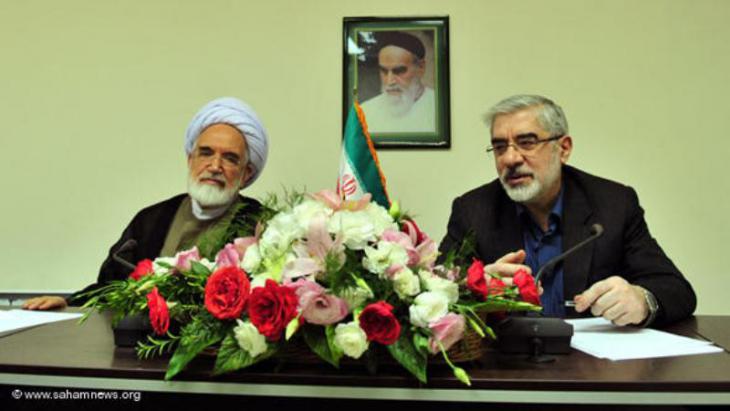Time for a human rights deal in Iran

Opinions differ as to how the recent nuclear deal will impact on the human rights situation in Iran. What is your view?
Shirin Ebadi: I believe the human rights situation will improve. However, this will require that more information on this issue reaches the public, and that activists – both in and outside Iran – become more active. The lifting of sanctions will improve the economic situation of the people and hence give them more time to deal with issues such as human rights and political prisoners.
What part can the West and its media play in this regard?
Ebadi: If Western governments can talk about economic ties with Iran, then they can also address human rights issues. Every country has its own interests at heart, but governments also want to be popular and win votes. If we, as rights activists, succeed in sensitising and making the Western public aware of rights issues in Iran, then this can contribute to influencing their governments and putting the issue on the international agenda.
So you don't believe the nuclear deal will lead to a diminished interest by the West in human rights issues, or that the issue will become a victim of economic interests, as feared by some activists?
Ebadi: No. On the contrary, I believe the agreement will increase the sensitivity of the West for the rights situation in Iran and pave the wave for talks on the issue. As mentioned before, this will require an increased awareness and flow of information, but this is the task of rights activists operating in and outside Iran.

Are you saying the West has less to worry about following the nuclear agreement?
Ebadi: Until recently, the West was entirely focused on the nuclear issue. The dispute was about safety and the desire to prevent the development of nuclear weapons by Iran. Now that the issue has been settled, the West can now focus more openly on other issues.
Some argue that by ending the house arrest of Mehdi Karroubi and Mir Hossein Moussavi, the leaders of Iran's Green Movement, President Rouhani could set an example and fulfil his campaign promises. Do you think the nuclear deal could bring about their release?
I hope so. The streets were full of people celebrating the nuclear deal and chanting that now is the time for a "human rights deal". Now that the nuclear dispute has been settled, the West should focus on the human rights situation in Iran.
Interview conducted by Sharam Ahadi & Mitra Shodjaie
© Deutsche Welle 2015
Dr Shirin Ebadi was born in Hamedan, Iran, in 1947. She studied law in Tehran and became a judge in 1969. She gained a doctorate in private law from the University of Tehran in 1971 and was the first woman president of the Tehran city court, a post she held from 1975 to 1979. She co-founded the children's rights organisation Society for Protecting the Rights of the Child (SPRC) in 1994. In 2002, Ebadi and other Iranian legal experts founded the Defenders of Human Rights Center (DHRC), which fought for the rights of minorities. In 2003, her courageous struggle for justice and human rights was honoured with the Nobel Peace Prize.
